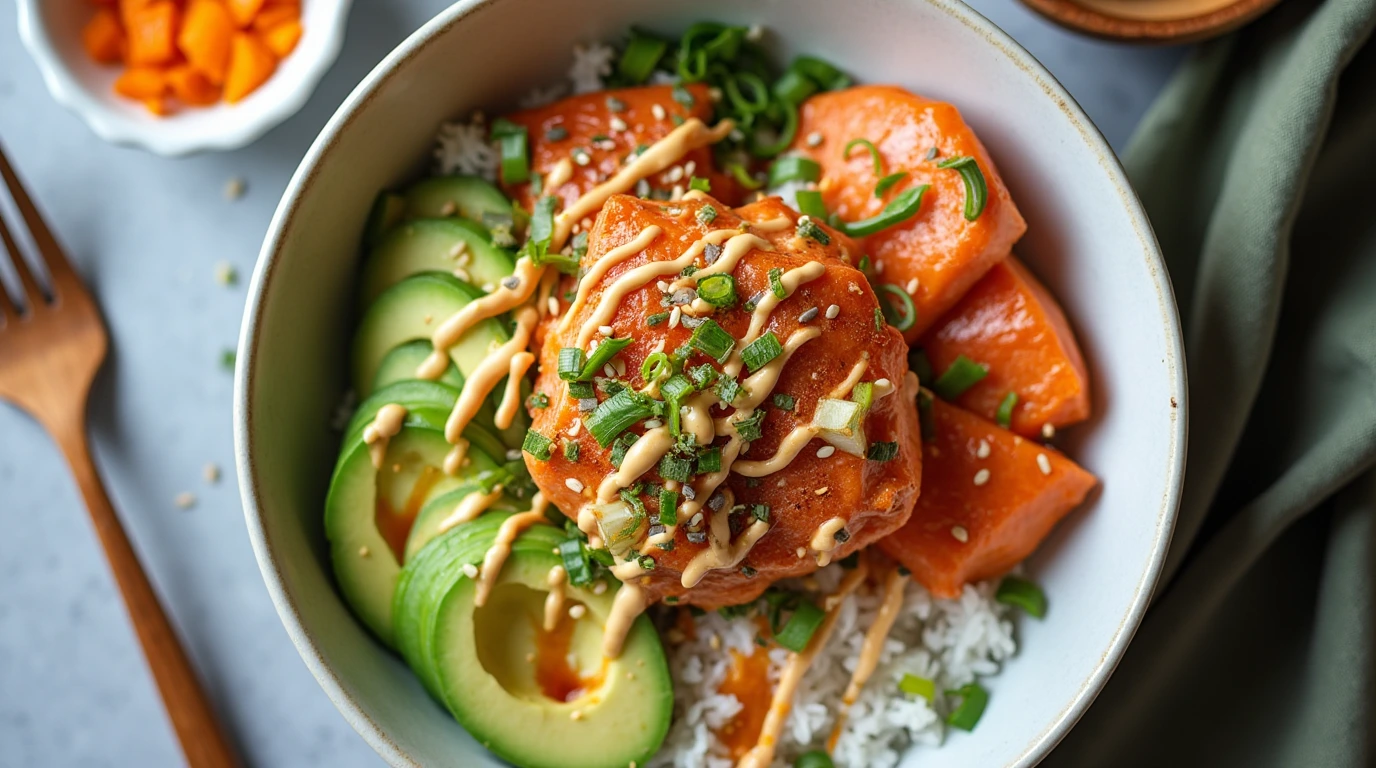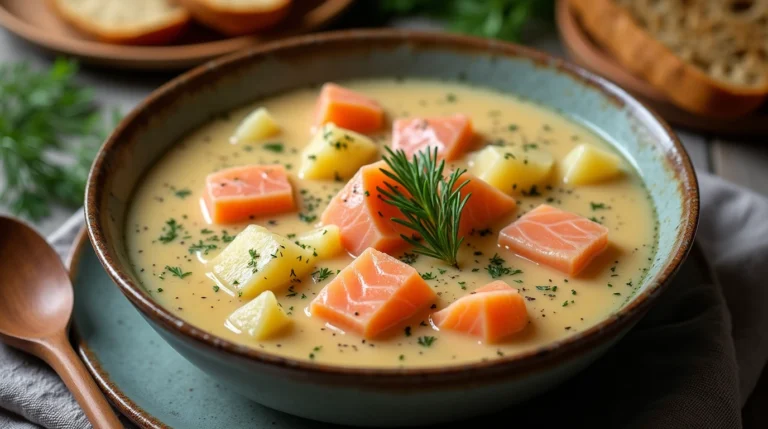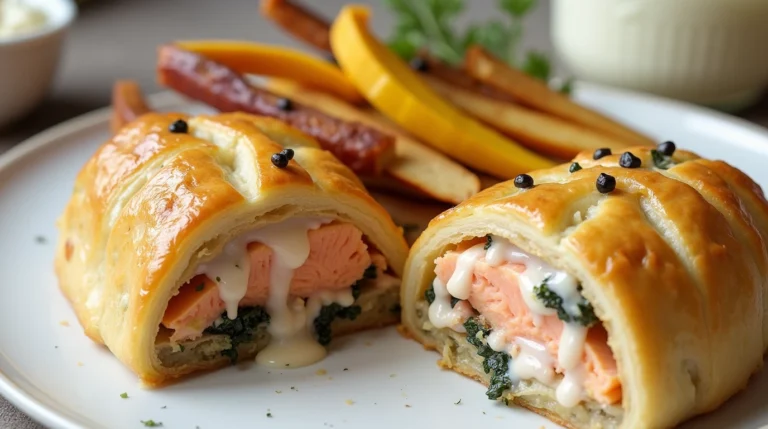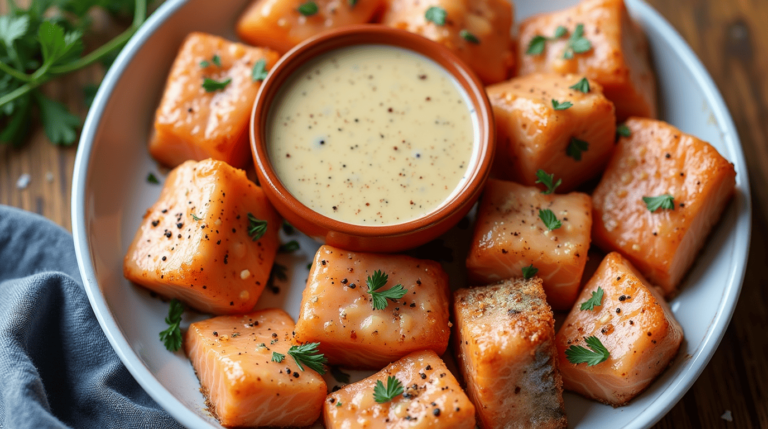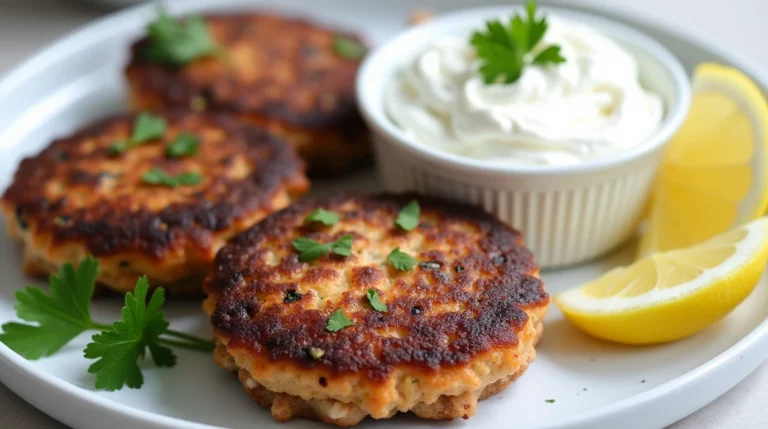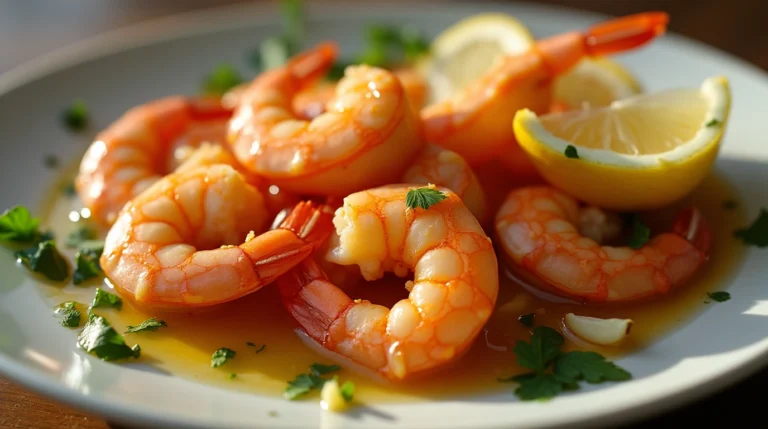Easy Salmon Rice Bowl: A Step-by-Step Guide
Why Salmon Rice Bowls Are the Ultimate Comfort Food
Salmon rice bowls have a magical way of combining simplicity with sophistication. The tender, flaky salmon, paired with warm, fluffy rice, creates a meal that is both hearty and wholesome. These bowls are endlessly customizable, allowing you to tailor every ingredient to suit your preferences. Whether you’re after a quick lunch or a satisfying dinner, a salmon rice bowl checks all the boxes.
Table of Contents
Benefits of Making an Easy Salmon Rice Bowl at Home
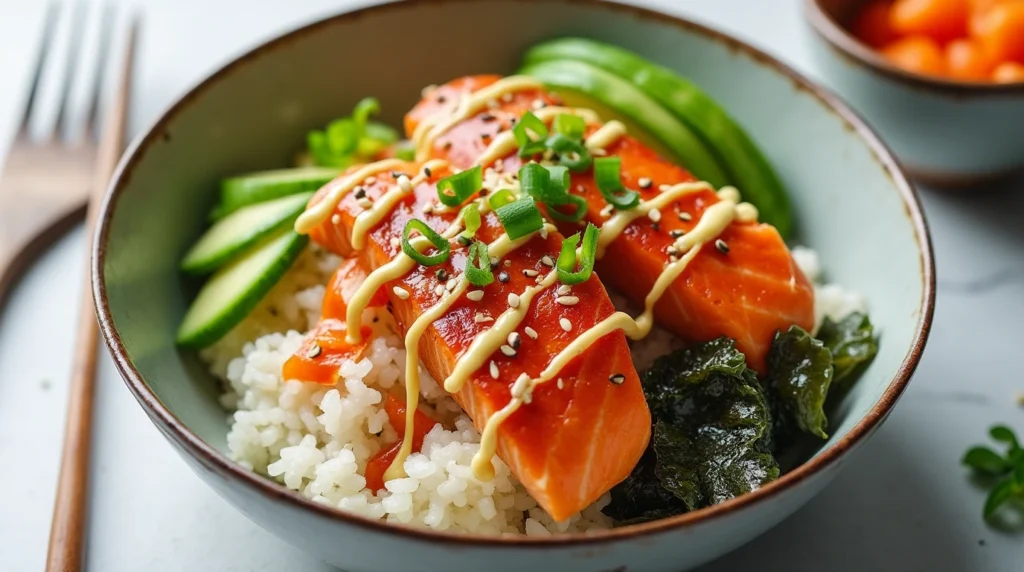
Homemade salmon rice bowls not only save you money but also give you control over freshness and flavor. By preparing them at home, you can adjust portion sizes, experiment with toppings, and ensure every ingredient aligns with your dietary needs. Plus, it’s an excellent way to practice culinary creativity while avoiding processed, prepackaged options.
What Makes a Great Salmon Rice Bowl
Choosing the Freshest Salmon for Maximum Flavor
Fresh salmon is the cornerstone of any delicious salmon rice bowl. Look for fish that has a vibrant color, a mild ocean scent, and firm, moist flesh. Wild-caught salmon is often preferred for its robust flavor and nutritional benefits, but high-quality farmed salmon can also work beautifully.
The Importance of Perfectly Cooked Rice
Rice is more than just a base; it’s the heart of your bowl. Perfectly cooked rice—whether it’s jasmine, sushi, or brown—offers a tender, slightly sticky texture that complements the salmon. Avoid overcooking, as mushy rice can detract from the overall experience.
Balancing Flavors with the Right Toppings
The beauty of a salmon rice bowl lies in its balance. A medley of toppings like pickled vegetables, avocado slices, sesame seeds, and scallions adds crunch, creaminess, and a burst of flavor. Sauces such as soy, teriyaki, or spicy mayo provide the perfect finishing touch.
Ingredients You’ll Need
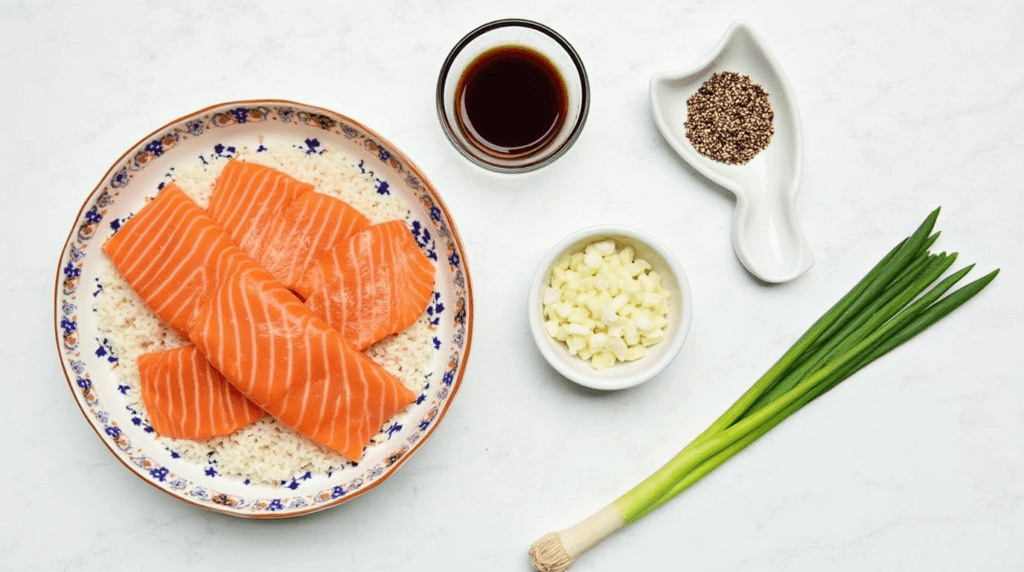
Essential Ingredients for a Classic Salmon Rice Bowl
- Fresh salmon fillets
- Cooked rice (jasmine, sushi, or brown)
- Soy sauce or tamari
- Sesame oil
- Scallions, thinly sliced
- Sesame seeds
Optional Add-Ons to Elevate Your Dish
- Sliced avocado
- Pickled ginger
- Cucumber ribbons
- Spicy mayo or sriracha
- Nori sheets, cut into strips
Prepping Your Salmon
How to Select the Best Salmon Cuts
Opt for center-cut fillets for even cooking. Skin-on salmon is ideal as it helps retain moisture during cooking, but you can remove the skin if preferred.
Tips for Marinating Salmon for Extra Flavor
A simple marinade of soy sauce, sesame oil, garlic, and a touch of honey works wonders. Let the salmon marinate for 15–30 minutes to enhance its flavor without overpowering its natural taste.
Cooking the Perfect Salmon
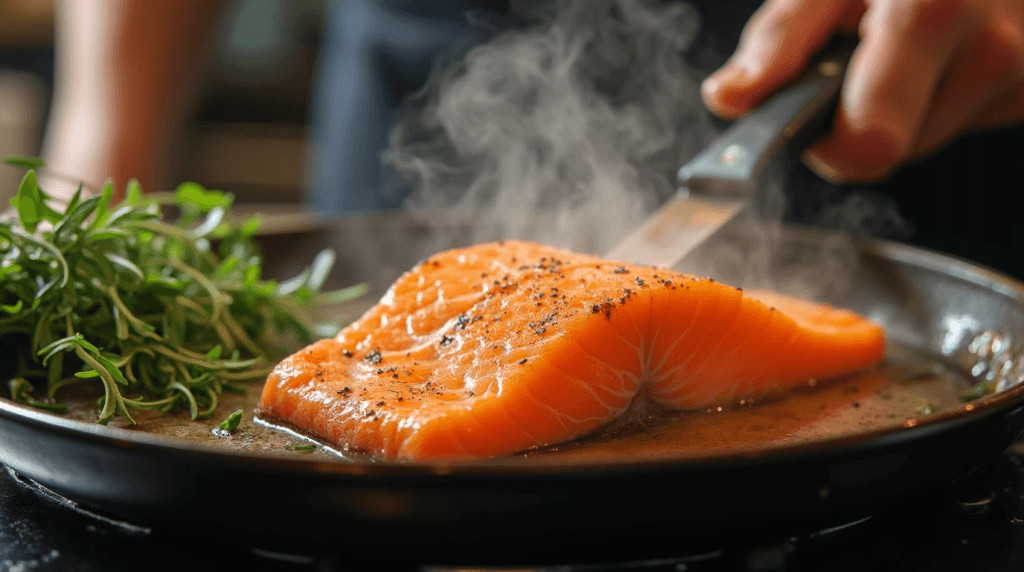
Pan-Seared vs. Oven-Baked Salmon: Which to Choose
- Pan-Seared: Provides a crispy exterior with a tender interior. Ideal for those who love a bit of texture.
- Oven-Baked: Ensures even cooking and is a hands-free method, perfect for batch cooking or multitasking.
Step-by-Step to Achieve Tender, Juicy Salmon
- Preheat your skillet or oven to medium-high heat.
- Cook salmon skin-side down for 3–4 minutes (if pan-searing) or bake at 375°F for 12–15 minutes.
- Avoid overcooking by checking for an internal temperature of 145°F.
Crafting the Rice Base
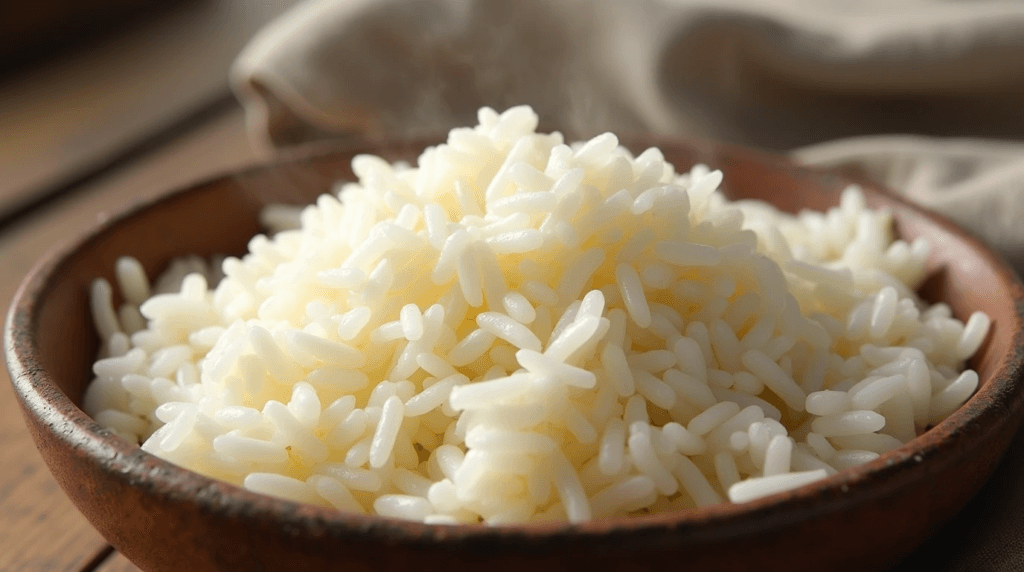
Tips for Cooking Fluffy, Flavorful Rice
Rinse your rice thoroughly to remove excess starch, ensuring a light, non-sticky texture. Use a 1:1.5 ratio of rice to water for perfectly cooked grains.
Adding Seasoning or Vinegar for Extra Taste
Mix a splash of rice vinegar, sugar, and salt into warm rice for a subtle tang. Alternatively, drizzle a bit of sesame oil for a nutty aroma.
Assembling the Bowl
Layering Like a Pro for the Perfect Bite Every Time
Start with a generous bed of rice, followed by flaky salmon pieces. Add your toppings in sections for a visually appealing presentation.
Adding Toppings That Bring Texture and Flavor
Sprinkle sesame seeds, drizzle spicy mayo, and garnish with scallions. Add a side of pickled ginger for a burst of acidity that cuts through the richness.
Customizing Your Salmon Rice Bowl
How to Adjust for Dietary Preferences and Allergies
- Swap soy sauce for tamari to make it gluten-free.
- Use cauliflower rice for a low-carb version.
- Replace salmon with tofu or shrimp for variety.
Creative Topping Ideas for a Unique Twist
- Mango chunks for sweetness
- Kimchi for a tangy, fermented kick
- Roasted seaweed snacks for extra crunch
Serving Suggestions
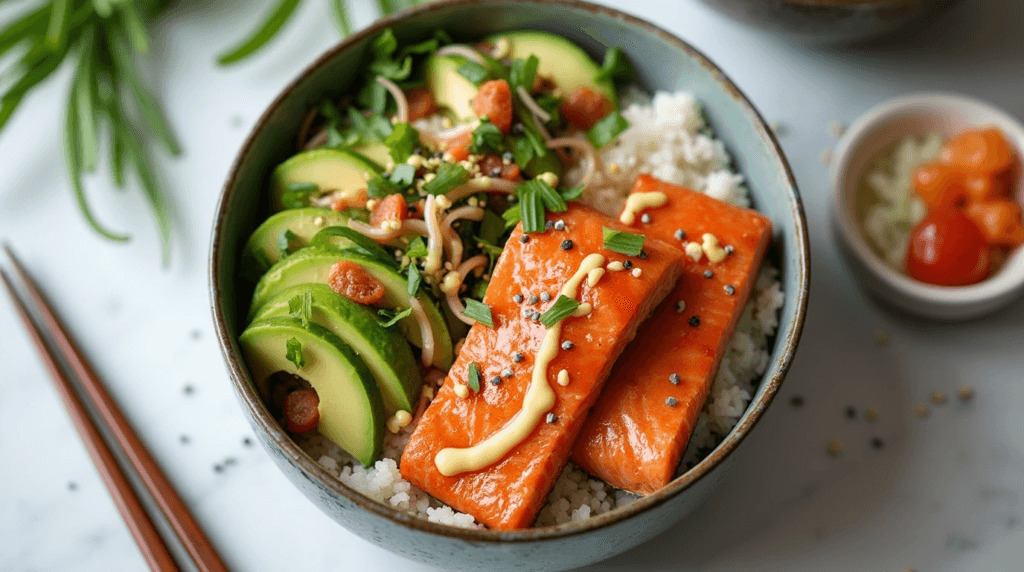
Pairing Your Bowl with Sides and Beverages
Pair your bowl with a miso soup or a light salad. A cold green tea or a sparkling water with lime makes for a refreshing accompaniment.
Presentation Tips to Impress Guests
Use a wide, shallow bowl for serving. Arrange toppings artfully, and sprinkle sesame seeds just before serving to add a touch of elegance.
Tips for Quick and Easy Cleanup
Minimizing Mess While Cooking
Use parchment paper for baking and cook rice in a non-stick pot to reduce scrubbing time. Prep ingredients in advance to keep counters clean.
How to Store Leftovers to Keep Them Fresh
Store leftover components separately in airtight containers. Reheat rice with a splash of water to restore its texture and enjoy within two days.
Conclusion
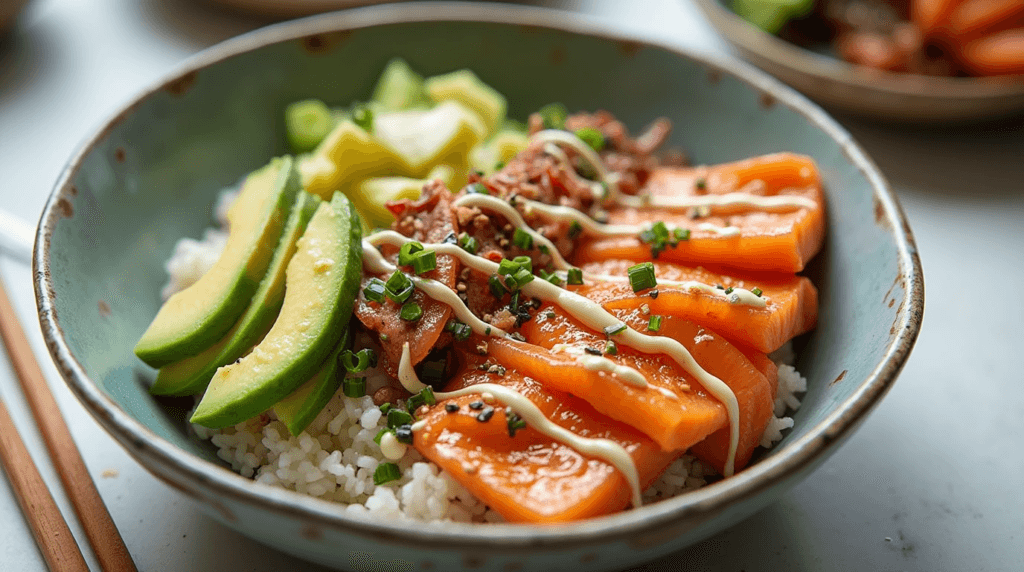
Recap of Why This Easy Salmon Rice Bowl Is a Must-Try
This salmon rice bowl is the epitome of a balanced meal nutritious, delicious, and endlessly adaptable. From the tender salmon to the fluffy rice and vibrant toppings, it’s a dish you’ll want to make on repeat.
Encouragement to Experiment and Make It Your Own
Don’t be afraid to experiment with flavors and textures. Whether you stick to the classic version or add your personal twist, this easy salmon rice bowl is sure to become a household favorite.

